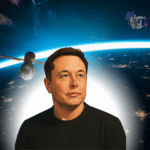The universe, as we understand it today, began approximately 13.8 billion years ago with the event known as the Big Bang. But this foundational idea in modern cosmology leads to one of the most fascinating and puzzling questions of all time: what came before the Big Bang? Answering this question requires venturing beyond the boundaries of known physics, touching on speculative science, philosophy, and the very nature of time and existence.
What Exactly Was the Big Bang?
Before we explore what might have come before it, it’s crucial to understand what the Big Bang actually was. Contrary to popular belief, the Big Bang wasn’t an explosion in space — it was the expansion of space itself from an extremely hot, dense state.
In its earliest moments, the universe was a superheated, energetic “soup” of particles. As it expanded and cooled, atoms formed, leading to stars, galaxies, and eventually, life.
Did Time Begin With the Big Bang?
This is where things get truly mind-bending: many physicists believe that time itself began with the Big Bang. In other words, asking “what happened before the Big Bang?” might be like asking “what’s north of the North Pole?” — the question may not even make sense under the rules of our universe.
According to Einstein’s theory of general relativity, space and time are intertwined. If space began with the Big Bang, so did time. There may have been no “before” — at least, not in any way we currently understand.
Scientific Theories About “Before”
Even with this limitation, scientists have proposed fascinating hypotheses about what might have preceded the Big Bang — or what could exist beyond it.
1. The Cyclic Universe
One idea suggests that the universe is part of an infinite cycle of expansion and contraction. In this model, the Big Bang wasn’t the beginning, but simply the latest “bounce” in a never-ending cosmic rhythm. After the universe expands, it eventually collapses in on itself, only to explode outward again.
2. The Multiverse Theory
Another hypothesis is the existence of a multiverse — a vast collection of parallel or “bubble” universes. In this view, our universe may have originated from the quantum fluctuations or collisions of other universes. The Big Bang would then be a local event, one of many cosmic births in a greater meta-reality.
3. Quantum Vacuum Fluctuations
Quantum mechanics suggests that empty space isn’t truly empty. Instead, it’s filled with fleeting, spontaneous quantum fluctuations. Some physicists propose that one of these fluctuations could have led to the birth of our universe — essentially, something from (almost) nothing. However, this “nothing” is a seething quantum field rather than an absolute void.
4. Quantum Gravity and the “Big Bounce”
Scientists are also working on unifying quantum mechanics and general relativity into a theory of quantum gravity. One such theory, loop quantum gravity, proposes that the Big Bang was not a beginning, but a bounce — a transition from a previous contracting universe. This “Big Bounce” model suggests a pre-Big Bang era that collapsed and rebounded into the universe we now inhabit.
Philosophical Reflections
Beyond the physics, the question touches on deep philosophical territory:
- Can something come from nothing?
- Is the beginning of time an illusion of human perception?
- Could we ever understand a reality without time, if one exists?
Some thinkers argue that our brains, evolved for survival on Earth, might simply not be equipped to comprehend what “before the Big Bang” means — assuming it even exists.
Why the Question Still Matters
Even if we never find a definitive answer, asking what came before the Big Bang helps drive scientific discovery, cosmological theory, and existential reflection. It pushes the boundaries of what we know and inspires new tools, new math, and new physics to explore the unknown.
It also touches something deeper in us — a longing to understand not just how we got here, but why anything exists at all.
A Universe of Possibilities
In the end, the question of what existed before the Big Bang might never have a single, simple answer. It may involve realms of existence beyond our universe, cycles of cosmic rebirth, or the fundamental limits of time and space themselves.
But one thing is clear: by asking these questions, we are reaching toward the edges of human understanding — and that pursuit, in itself, is one of the greatest adventures of all.



